L'Oréal Honors Mathematician Ingrid Daubechies for Her Contributions to the STEM Field
L'Oréal Honors Mathematician Ingrid Daubechies for Her STEM Contributions
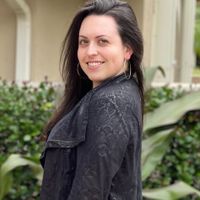
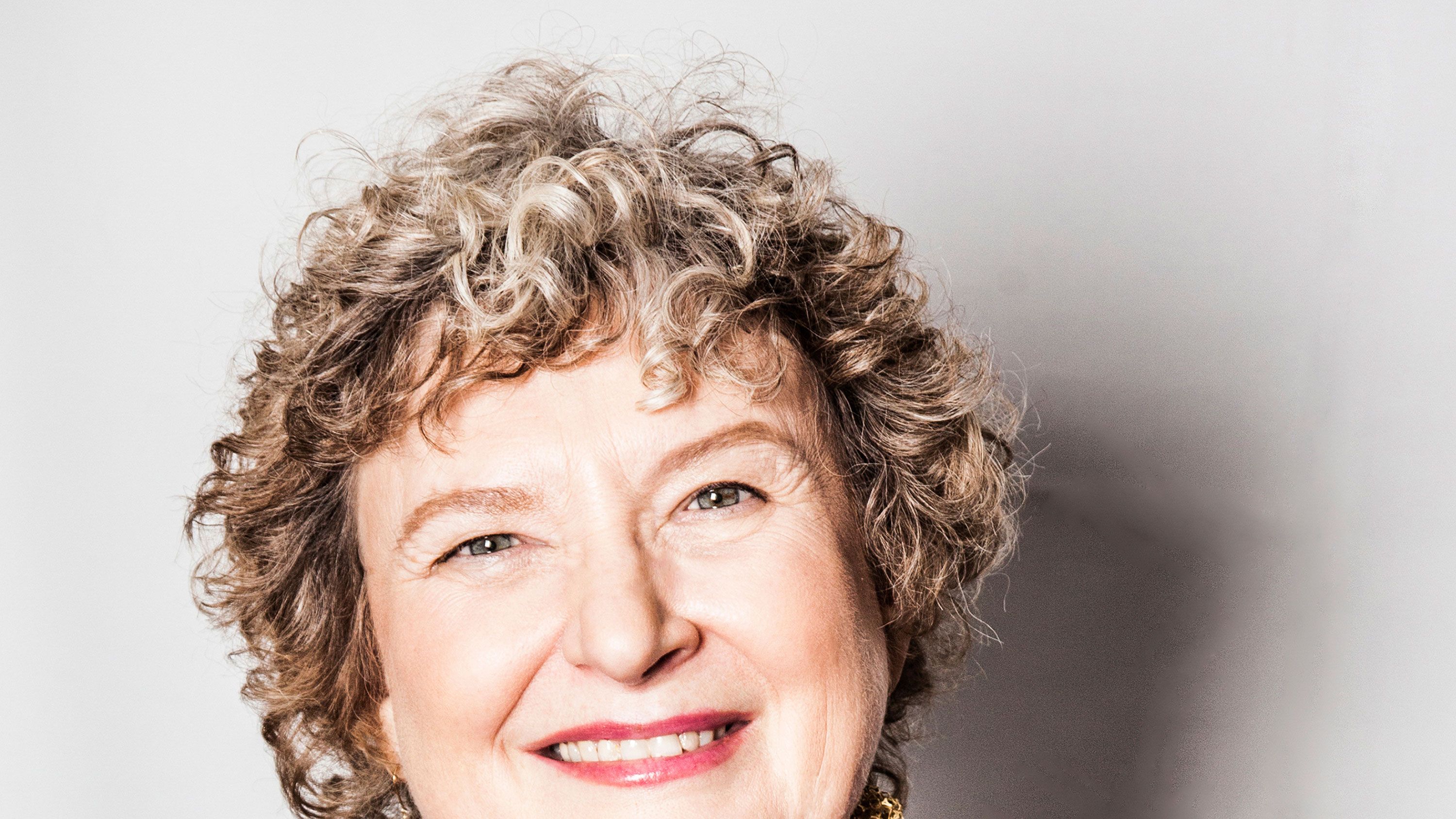
Women are underrepresented in the STEM field, and they're more likely to experience workplace discrimination than their friends who have non-STEM jobs. Yes, this is still happening in 2019, and yes, this needs to change. For their part, L'Oréal is giving women in STEM the recognition they deserve in hopes it will empower more women to enter the field.
For more than 20 years, the beauty company has honored female scientists across the globe in fields including chemistry, physics, mathematics, and computer science during the annual L’Oréal-UNESCO International Award For Women in Science. This year, Duke University Professor Ingrid Daubechies—one of the most accomplished mathematicians of our time and the first woman to receive the National Academy of Sciences Award in Mathematics in 2000—is the North American Laureate.
Ahead of today's award ceremony in Paris, where each recipient will receive a €100,000 grant for their contributions to the field, MarieClaire.com spoke to Daubechies, 64, about her groundbreaking inventions, and why—despite the lack of representation—young women interested in STEM shouldn't be discouraged from pursuing a career in it.
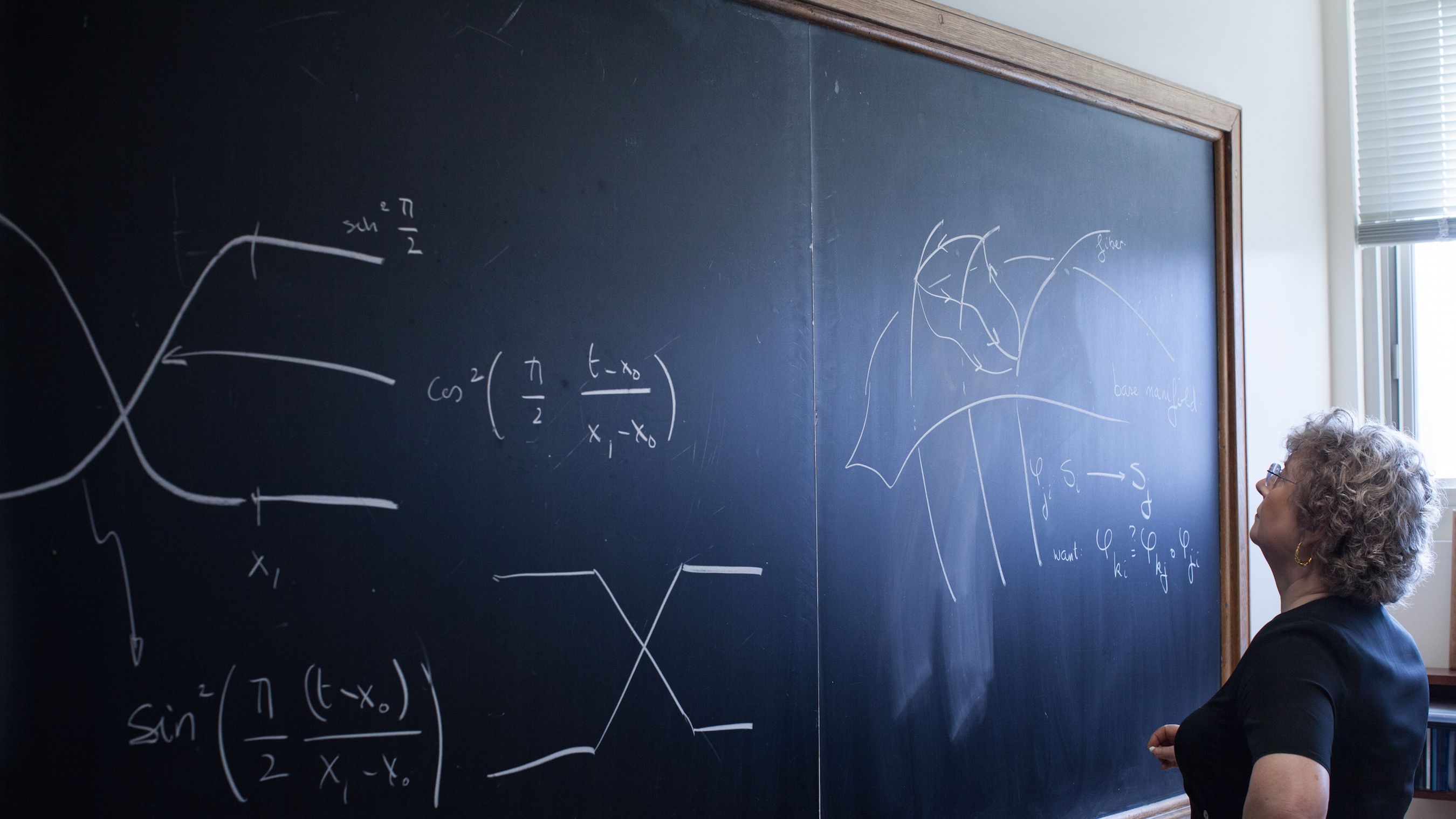
Professor Ingrid Daubechies in a classroom at Duke University, where she's a professor of mathematics.
Marie Claire: Prior to your current job as professor of mathematics at Duke University, you were the first tenured female professor of mathematics at Princeton. As a young girl, were you hesitant to enter the STEM field because of the limited opportunities for women?
Ingrid Daubechies: I went to public school in Belgium, where I grew up, but at the time it was gender-segregated. It wasn't a surprise that I was interested in science because there was nobody else but girls. I didn't encounter this attitude that people might be surprised that I liked math and science because I was a woman until I went to college, and by then I was really set in my ways. For anyone who was surprised, I would just see it as a reflection of themselves.
MC: You're widely known for your advancements with the wavelet theory. Can you explain what this is?
ID: A wavelet is a mathematical tool used to decompose images into different layers corresponding to their resolutions. Imagine building an image on a computer screen: First you use a tool that lays it down on a background, then you add more details and make the edges sharper—that's what wavelets do. The wavelets give you a way of describing the large features and adding a sharper resolution to them, which is why it's good for image compression. In many images of interest to us, you need to find details that are not spread all over the image and the edges need to be sharply defined. You can use it for medical images like mammograms where the details are necessary for the doctors in order to make their diagnosis.
Get exclusive access to fashion and beauty trends, hot-off-the-press celebrity news, and more.
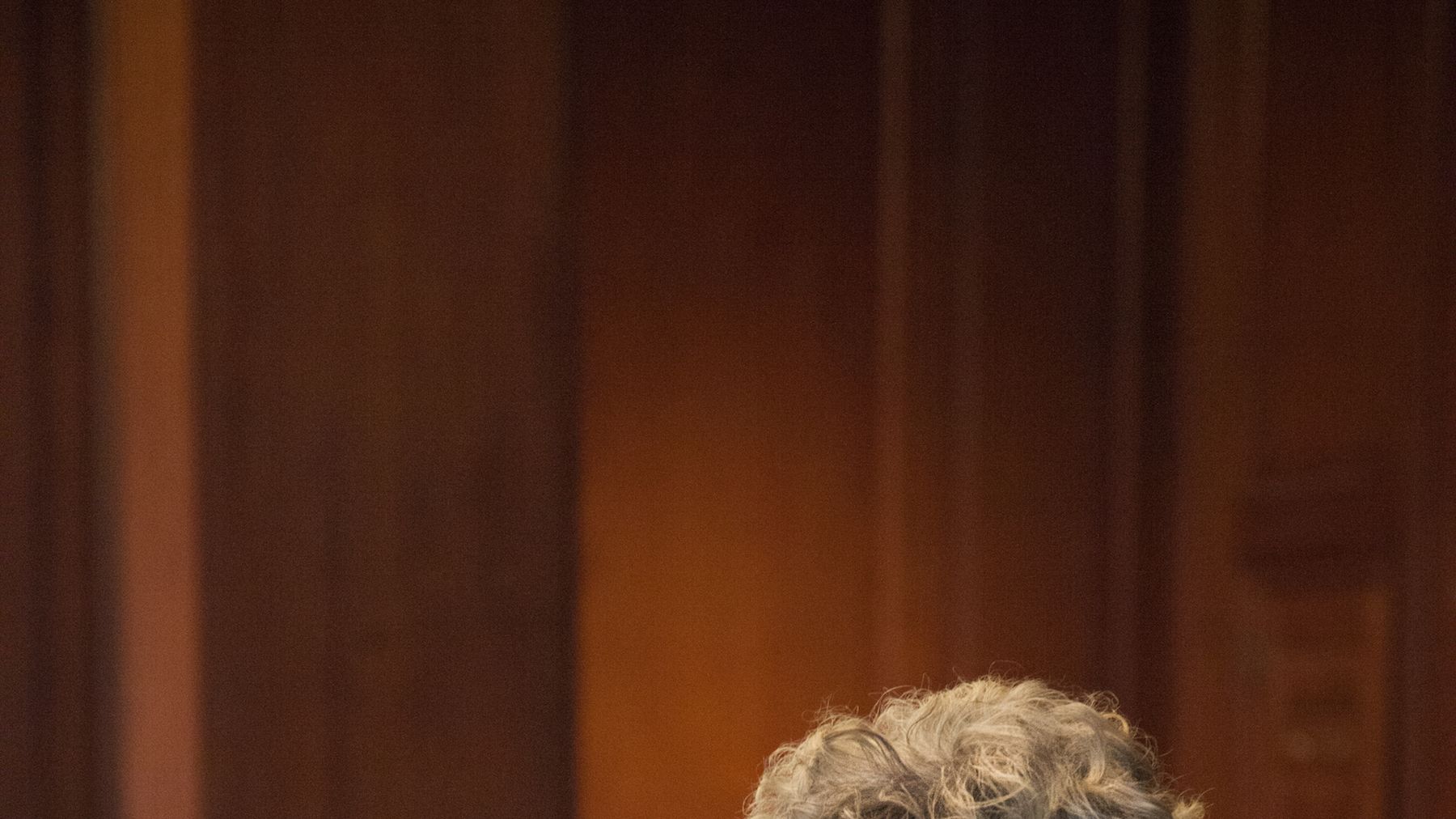
Professor Daubechies lecturing to colleagues.
MC: What was that moment of discovery like? How do you know when you've truly discovered something new?
ID: You don't discover things like that in one fell swoop. Many people worked on the wavelet theory before me—constructions have been done earlier by mathematicians. In order to apply them you have to mutilate the theory, and you would lose the beautiful mathematical property. I wanted to see the constraints of the application. I turned the whole theory on its head.
When you discover something new in mathematics, it's an incredible high and you want to understand it better. After two weeks, you understand it well enough and you feel like you should have found it sooner. I often warn my students about that—they should enjoy the high because it won't last.
When there's a community, women are more eager to enter the field rather than when we see it as a competitive environment.
MC: How does it feel to win the 2019 L’Oréal-UNESCO International Award For Women in Science? Did you know you were being considered for it?
ID: It was a complete surprise to me. I didn't even know I was nominated. I really like that L’Oréal recognizes senior women in science, like me, while also celebrating the next generation of young women who are at the start of their career and already doing incredible work.
Too often people encounter the attitude that because you're a woman who's interested in beauty or makeup that you can't be smart. The two have nothing to do with each other. I hope girls who are also interested in beauty do not get discouraged to have a career in science. Science and mathematics are alive and vibrant and growing. It's sad that we are missing out on the balance of smart young women. I hope this award will help bring more young women to these fields. L'Oréal put a lot of effort into this, and I really appreciate that.
MC: What advice do you have for young women interested in STEM?
ID: Take all of the math and science classes you can in high school. Be ambitious. It's important not to downgrade yourself. When you get to these places, look out for others who have the same mindset. As a team, you feel much stronger and can support each other. When there's a community, women are more eager to enter the field rather than when we see it as a competitive environment. We need creativity more than ever. So, if you have the curiosity, act on it.
For more stories like this, including celebrity news, beauty and fashion advice, savvy political commentary, and fascinating features, sign up for the Marie Claire newsletter.
RELATED STORY
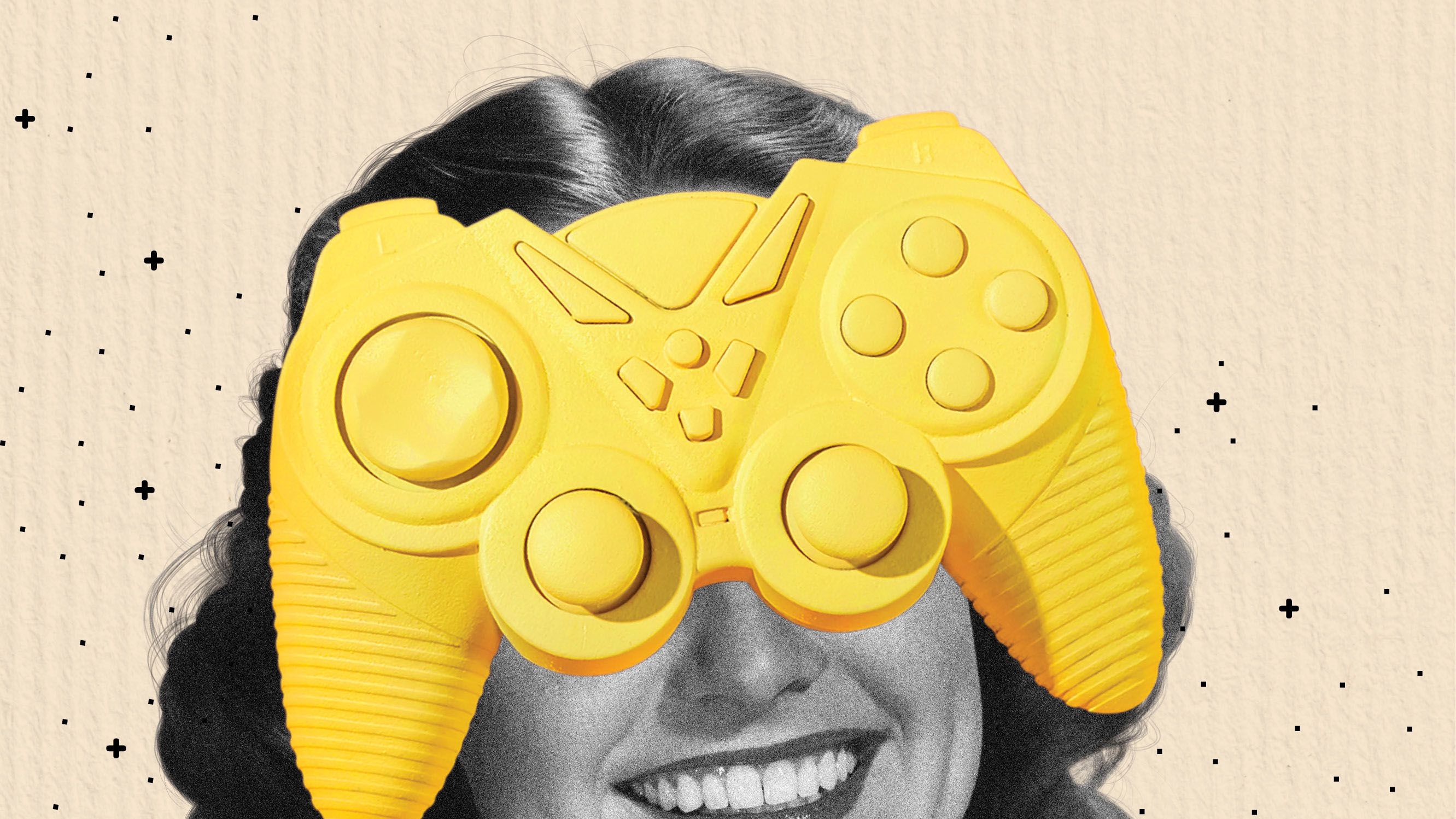
SHE'S GOT GAME
Rachel Epstein is a writer, editor, and content strategist based in New York City. Most recently, she was the Managing Editor at Coveteur, where she oversaw the site’s day-to-day editorial operations. Previously, she was an editor at Marie Claire, where she wrote and edited culture, politics, and lifestyle stories ranging from op-eds to profiles to ambitious packages. She also launched and managed the site’s virtual book club, #ReadWithMC. Offline, she’s likely watching a Heat game or finding a new coffee shop.
